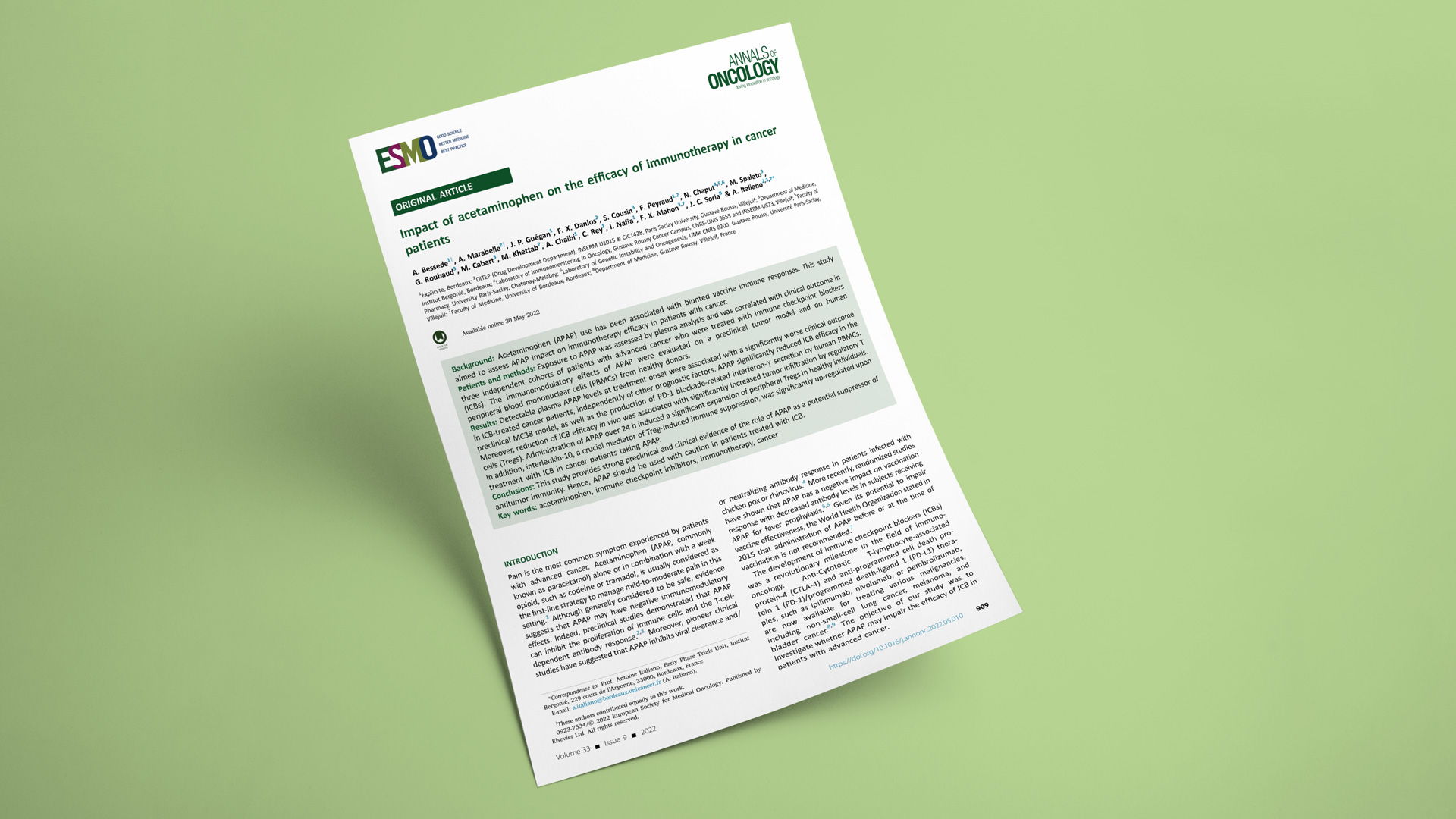In this collaborative work, researchers from Institut Bergonié, Institut Gustave Roussy, and Explicyte, demonstrated that presence of Acetaminophen (APAP) in plasma from cancer patients before they undergo immunotherapy was independently associated with a worse clinical outcome. Also, APAP was shown to limit immune checkpoint blockers (ICBs) efficacy in the preclinical MC38 model, an effect associated with an enrichment in regulatory T cells (Tregs) within the tumor. After its administration in healthy individuals, APAP was found to expand Tregs and increase markers such as LAG3 and TIM3, markers known to be associated with immune suppression.
By combining clinical and preclinical investigations, we were thus able to demonstrate a detrimental effect of APAP on cancer immunotherapy efficacy which thus warrant further investigations to elucidate the underlying mechanism of action.
This piece of work has been published in Annals of Oncology and orally presented by Antoine ITALIANO at ASCO earlier this month.
The paper:
Bessede A, Marabelle A, Guégan JP, Danlos FX, Cousin S, Peyraud F, Chaput N, Spalato M, Roubaud G, Cabart M, Khettab M, Chaibi A, Rey C, Nafia I, Mahon FX, Soria JC, Italiano A. Impact of acetaminophen on the efficacy of immunotherapy in cancer patients. Ann Oncol. 2022 Sep;33(9):909-915. doi: 10.1016/j.annonc.2022.05.010. Epub 2022 May 30. PMID: 35654248.

